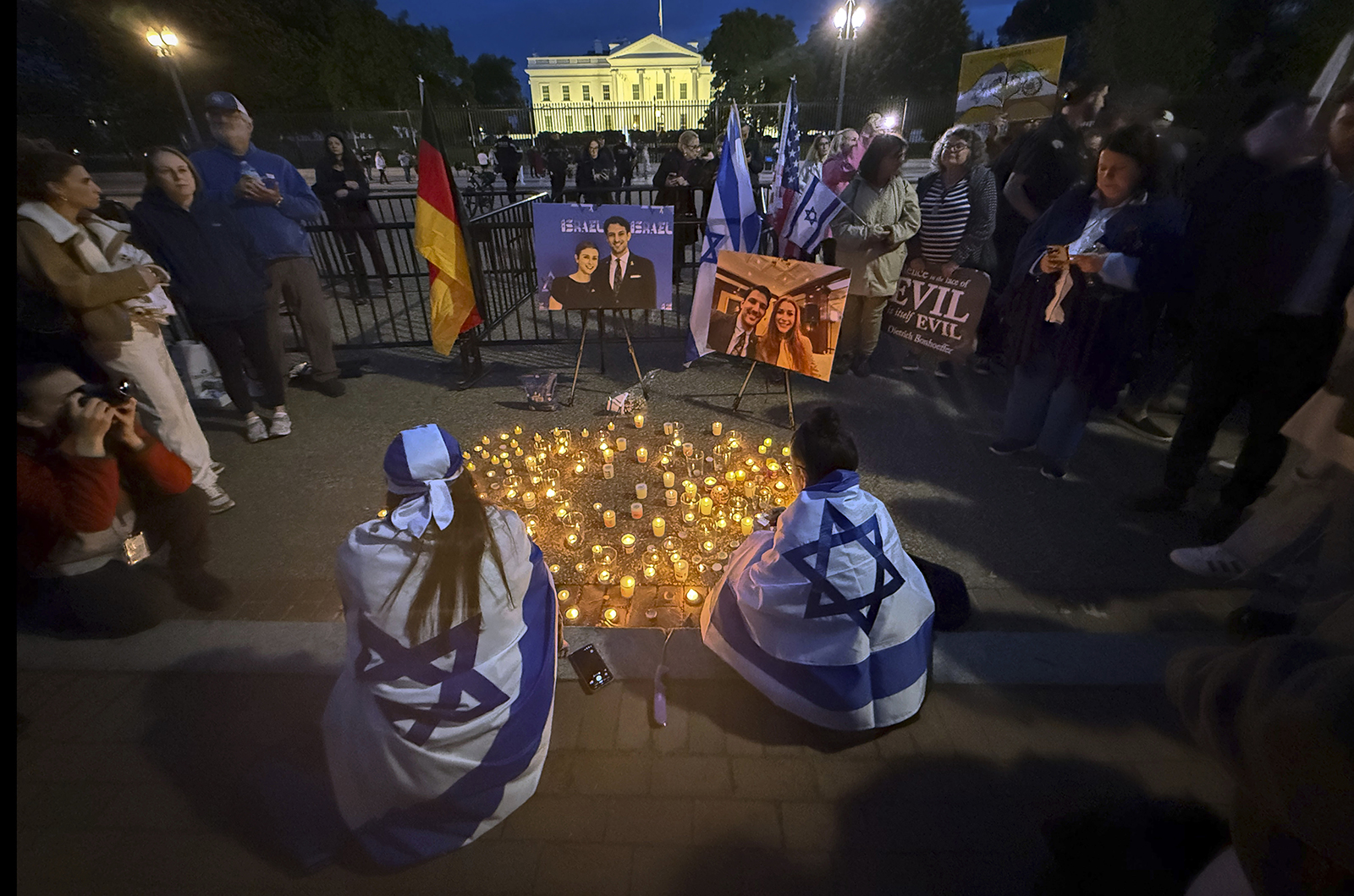
(RNS) — Like millions of others, I awoke yesterday to the terrible news of the execution-style murders of Sarah Milgrim and Yaron Lischinsky, whose only “crime” is that they were breathing while Zionist. It all became more personal when about an hour later, I learned Yaron was the son of Daniel Lischinsky, a wonderful Israeli-Argentine tour guide with whom I have led trips in Israel for Hispanic pastors from North and South America.
Daniel is warm, wise and a truly gentle soul. Now he and the rest of Yaron’s family, along with Sarah’s family, are in hell. My heart is with them, and my heart aches for all civilians who are targeted for murder, regardless of who they are or what they believe.
But a broken heart is not enough. It is not enough to mourn these losses. We need to ask what can be done to prevent such crimes in the future. The suspect’s shouts point us all in at least one such direction: Three simple words we regularly tell our kids — watch your words.
According to police and eyewitnesses, the suspect called out two slogans popular at pro-Palestine/pro-Hamas demonstrations (which are not synonymous, but there is overlap): “Free, free Palestine” and “There’s only one solution, intifada revolution.” The “solution” and the freedom it imagines lead to murder. The “solution” to some people’s “Jewish problem,” yet again, needs to be “final.”
While I do not believe this is the desired outcome of all those who ever shouted those words, debating their intent matters little now, as much as some would like to do so. What matters is whether anyone who has shouted those words or defended them will question the morality and decency of using the slogans moving forward.
I could not believe more in the sacredness of free speech, including speech I find repugnant. But I also believe the exercise of our freedoms comes with obligations. What obligations must be assumed when people exercise their freedom of speech — especially the freedom to speak words after they know those very words have been used to justify murder?
Will there be any public soul-searching by those who have used those slogans in the wake of their use Wednesday night? I ask not because everyone who has shouted those words is guilty of murder, or even because most of them don’t feel remorse about what happened — even if many have said all supporters of Israel are guilty of at least some level of criminality. I ask these questions because we know that virtually every act of political, racial, ethnic or gender-driven violence was preceded by violent speech.
I ask about watching our words when people shout about violent revolution in any context. I asked these same questions when people marching in Charlottesville, Virginia, shouted “blood and soil.” I did not think all of them were Nazis — though some clearly were — or that all of them were calling for another Holocaust. I asked then, as I ask now, because the result of such violent speech almost always leads to violent deeds — however much the speakers feel that their use of such speech is different than when others use similar language.
We all say we need to watch our words, but do we really mean it? The test is whether we apply the same level of discipline to ourselves and the causes we care about most, as we do to our kids and the things they care about most. If we don’t meet that measure, we are hypocrites and worse. We are enablers of some of the worst forms of violence in the world.
As the great poet-theologian of the 20th century, Rabbi Abraham Joshua Heschel, said, “In any free society where terrible wrongs exist, some are guilty, all are responsible.” Now is the moment when responsible people must re-examine their words, regardless of how justified they think those words are. It is all our responsibility, and failure to do so can only lead to more murder.
(Rabbi Brad Hirschfield is president of the National Jewish Center for Learning and Leadership. He is also co-founder and co-executive editor of The Wisdom Daily. The views expressed in this commentary do not necessarily represent those of Religion News Service.)








